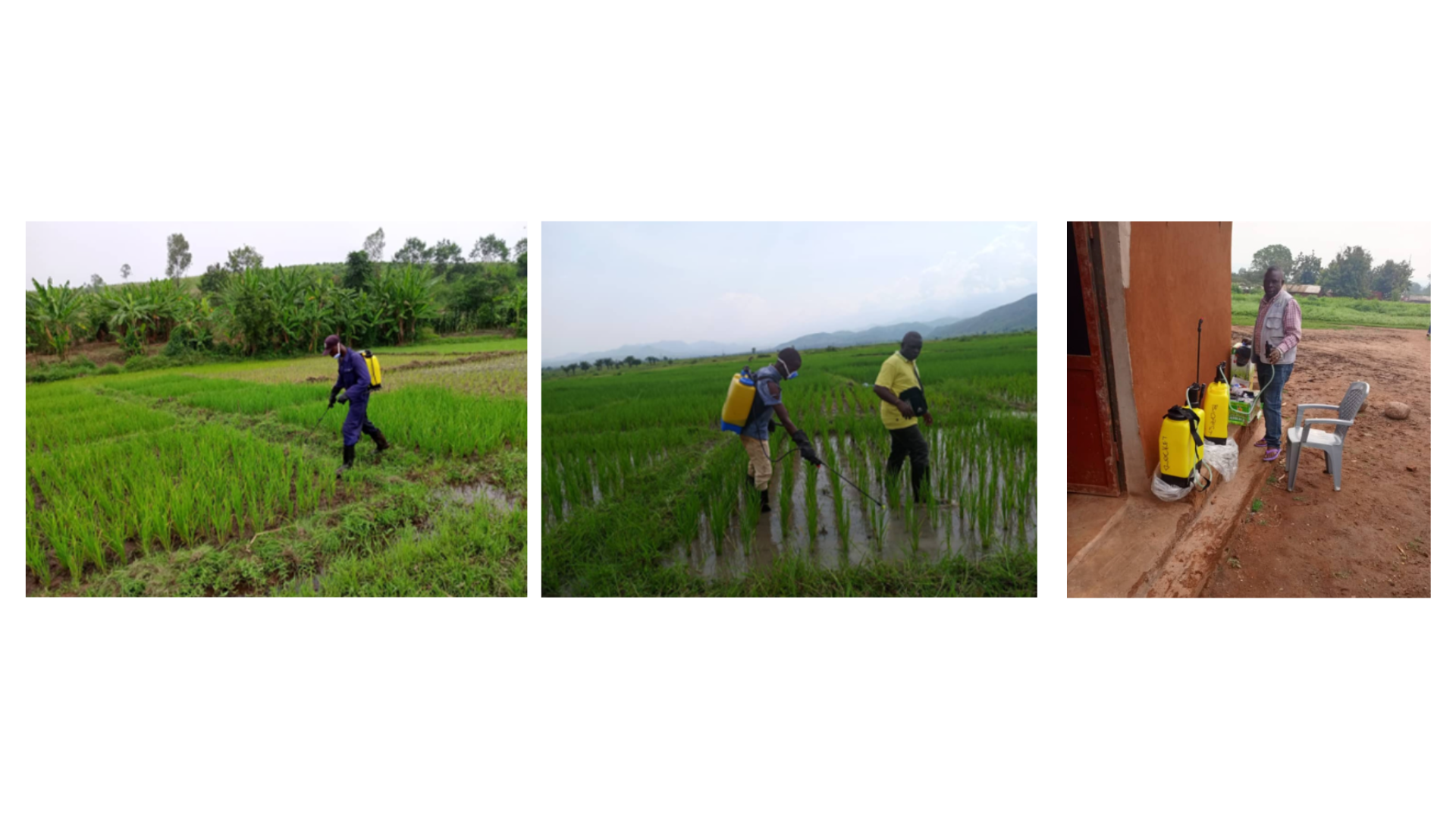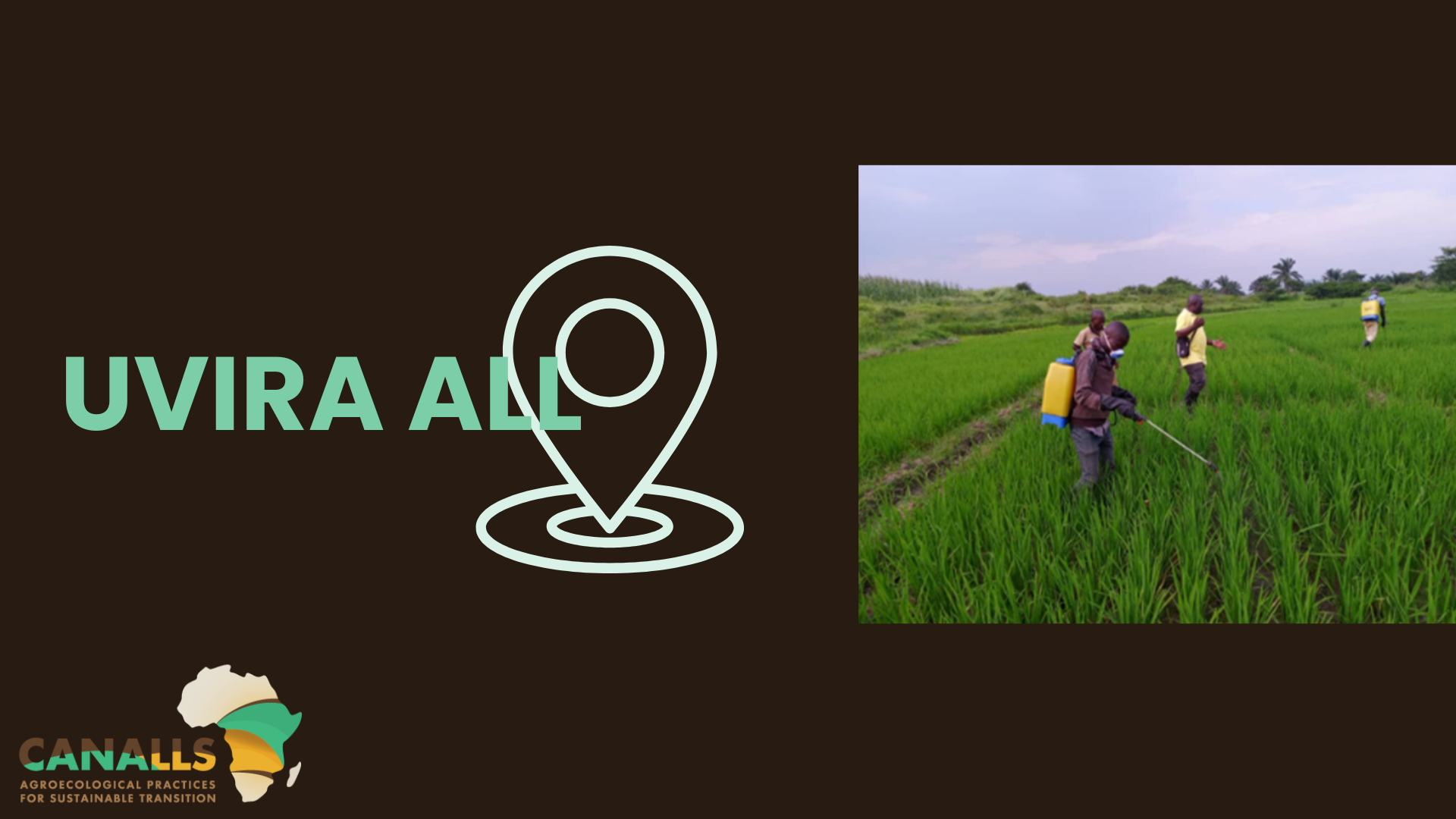The CANALLS project applies a co-creation approach to identify and implement agroecological practices tailored to farmers' needs and environmental challenges across Agroecological Living Labs (ALLs) in DRC, Rwanda, Burundi, and Cameroon. One of the four ALLs in the DRC is located in Uvira.
Situated between Walungu, Mwenga, Fizi, Lake Tanganyika, and the Ruzizi River plains bordering Burundi, Uvira has a semi-arid climate with a rainy season from November to May and a dry period from May to October. Agriculture dominates the region, with rice as the target crop in the CANALLS ALL. Farmers also engage in livestock rearing, including cattle, pigs, goats, and poultry.
During co-creation workshops, low rice productivity emerged as a major challenge, with pests, diseases, and declining soil fertility identified as key yield-limiting factors. Pest and disease infestations alone account for over 30% of rice yield losses, which farmers traditionally manage with chemical pesticides. Similarly, declining soil fertility leads to significant losses, typically addressed with chemical fertilizers. However, the COVID-19 pandemic and the war in Ukraine have exacerbated fertilizer shortages, threatening food security, particularly in sub-Saharan Africa, where soils often struggle with low fertility. Relying solely on inorganic fertilizers is no longer a sustainable solution.
As part of the CANALLS project, scientists and farmers co-designed agroecological practices, including the use of biopesticides and organic fertilizers. These practices are currently being tested and demonstrated to farmers in Uvira, with a focus on assessing the effectiveness and economic viability of biopesticides in controlling pests affecting rice production.

Biopesticides offer several advantages over conventional chemical pesticides. They effectively control pests and diseases while leaving minimal toxic residue and posing little risk to human health. Many biopesticides require zero or low re-entry and handling intervals, making them safer for farmers. Some microbial biopesticides can reproduce near the target pests, providing longer-lasting control. Additionally, they reduce the risk of pesticide resistance in pest populations and are often compatible with integrated pest management (IPM) programs, serving as a sustainable and eco-friendly alternative for crop protection.
The choice of biopesticide by rice farmers in ALL Uvira was dictated by the availability of plants from which they extract the necessary parts (Cedrela odorata leaves, Neem leaves and Palm oil) for its manufacture, and it’s locally produced. According to the testimony of farmers in the Ruzizi plain and especially in ALL Uvira, biopesticide and manure are effective, less expensive and presents no risk to the environment and human health unlike pesticides and chemical fertilizers.
The overarching goal of the Uvira ALL is to transform rice-based agroecosystems by moving from Level 1 (improving input efficiency and reducing harmful environmental impacts) to Level 2 (replacing conventional inputs with agroecological alternatives). Through this shift, the project aims to promote more sustainable and resilient agricultural systems in the region.



